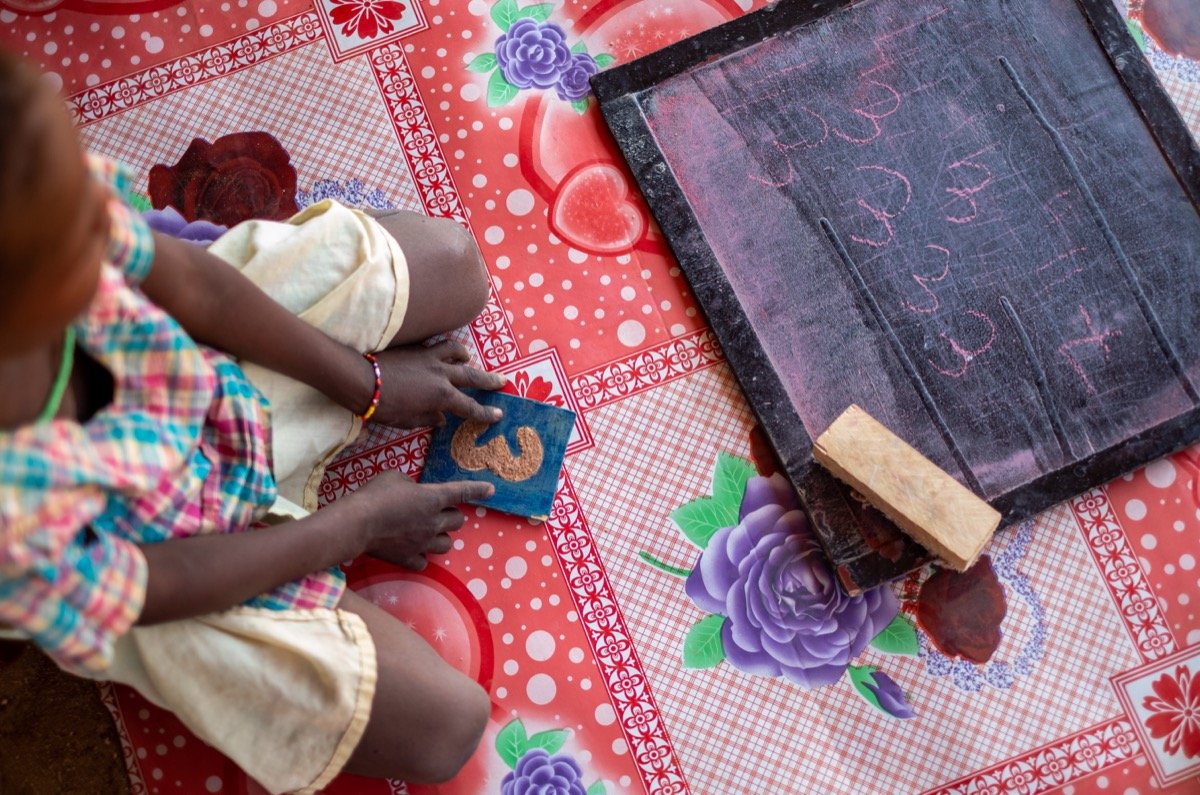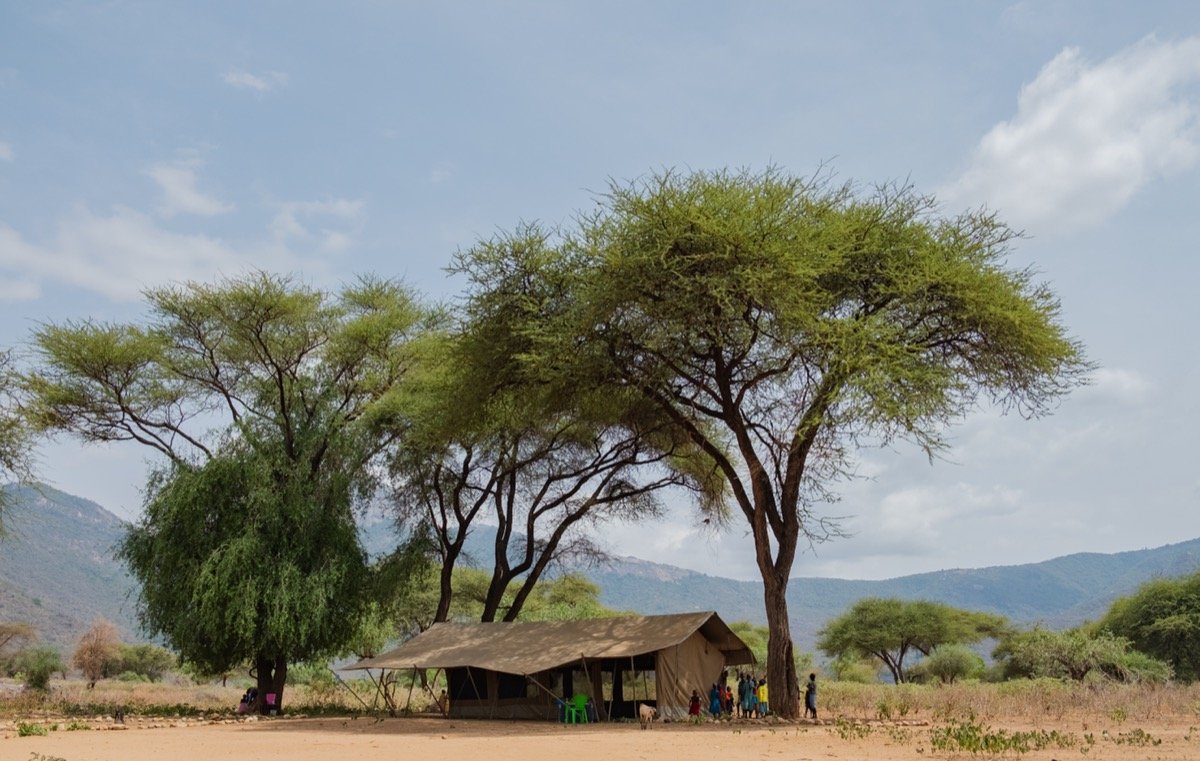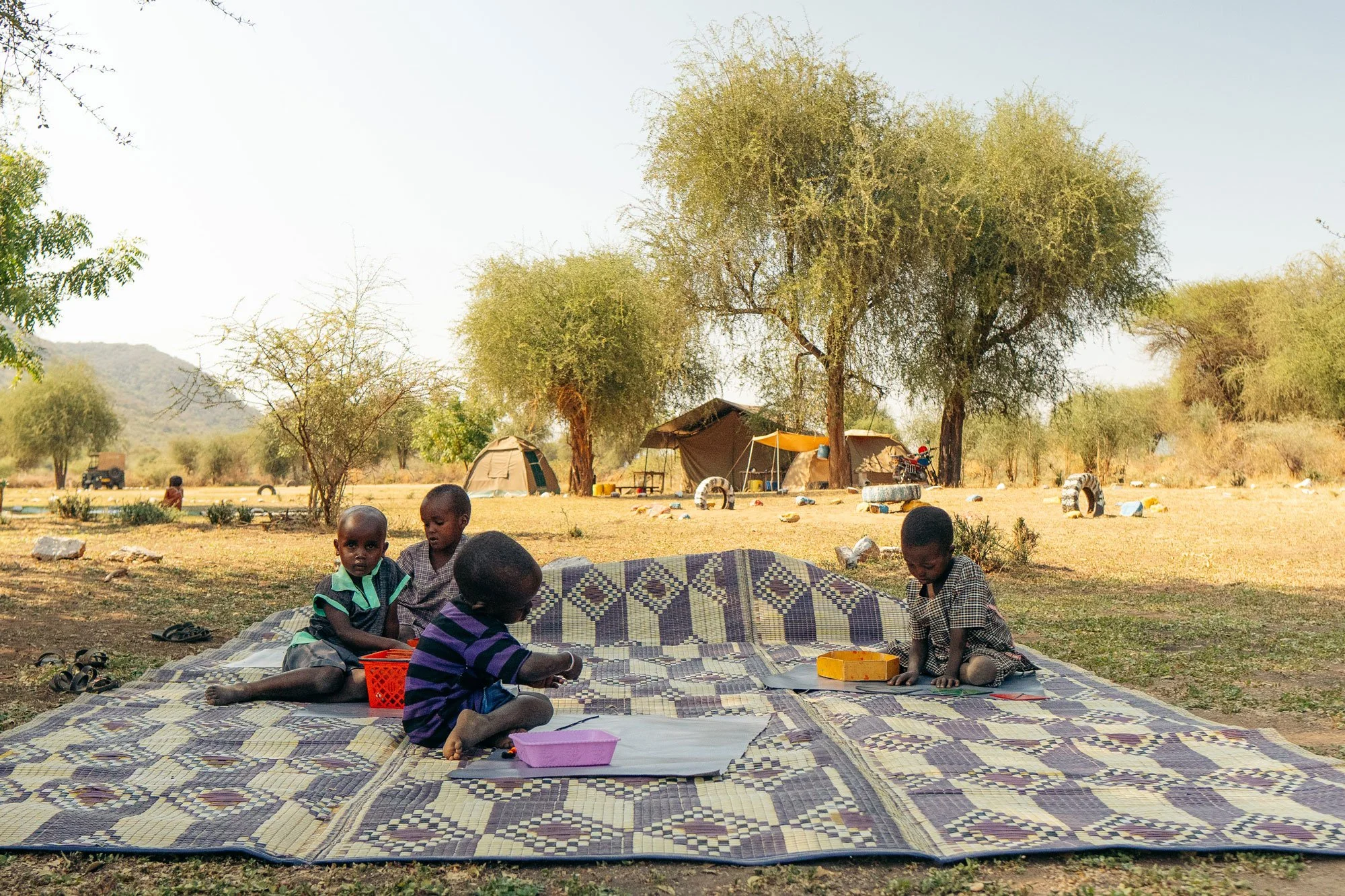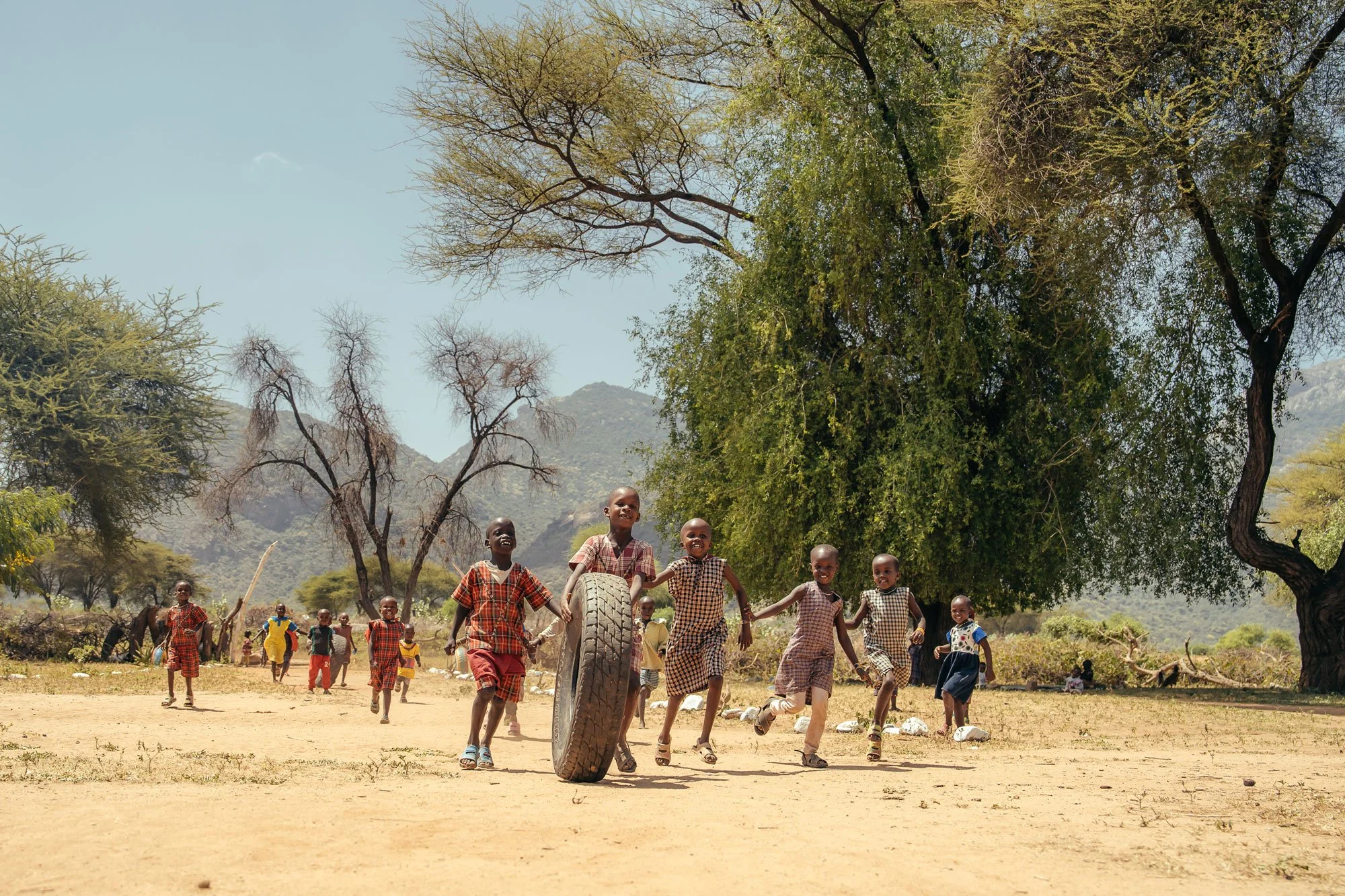THE SARARA FOUNDATION’S
Nomadic Education Program
The world’s first community-led Mobile Montessori Schools.
Join us in building a new school
We need your help to raise US$ 45,000 to build a new Mobile Montessori school for children aged 3–6, which will be our fifth early learning school serving Namunyak Community Conservancy. The target budget covers teacher salaries, transport, and training, startup materials, daily porridge for children, and security, as well as clothing support, toys, and games for young learners.
Make a Donation
A one-time gift helps us today. A monthly gift helps us plan for tomorrow — join The Herd!
Our Impact
2024
Pre-Schools
The Sarara Foundation has 4 Nomadic Montessori schools for pupils aged 3 - 6 in Namunyak Conservancy: Lengusaka, Ntaparani, Tintil, and Louwai Obo.
Teachers
We have 14 qualified Montessori teachers.
Our permanent staff include 7 male and 7 female teachers.
Graduates
Over 1,000+ children have received best-of-class early childhood development since 2019.
Enrollment
In 2024 a total of 185 children enrolled at our 4 Nomadic Montessori Schools with a near-equal split in genders:
96 boys and 89 girls.
Teacher Development
3 teachers are busy with their 3-6 International Diploma course in Tanzania.
4 teachers are pursuing the 6-12 International AMI Diploma in Mwanza, Tanzania.
Bursaries
1,874 bursaries awarded for further schooling and tertiary education. Co-funded by TSF and Namunyak Community Conservancy
The world’s first Mobile Montessori Schools
Our vision is to create a first-of-its-kind school system that celebrates the Samburu's indigenous culture, heritage, and nomadic lifestyles, while honouring the landscape and biodiversity.
Since 2019, our Mobile Montessori schools have given more than 1,000 Samburu children access to education close to home – delivered in mobile classrooms designed for their nomadic, pastoralist life.
Samburu Age Sets
One of the many traits that make the Samburu culture so unique, is that they do not have ages, but age sets. The Samburu’s age sets encourage camaraderie, community and unity; characteristics that have helped the indigenous Samburu people thrive.
A school structured around grades would be in conflict with the Samburu’s cultural framework, and very confusing for young child.
A nomadic, non-permanent school
The Samburu are nomadic pastoralists who move with their livestock in search of grazing. The schools had to be mobile with the ability to be collapsed and moved to where the Samburu move.
The resident seamster at Sarara Camp made the school tents which are collapsed at the end of each semester.
Feeding Program
We recognise the difficulty and stress that the prolonged drought in Northern Kenya has on families across the valley.
In order to support the students with a meal that the teacher can prepare with limited water, all the children attending our Nomadic Montessori schools, receive a nutritious porridge during school hours.














THE PURPOSE OF THE PROGRAM
By investing in the education of the next generation of indigenous Samburu leaders, we aim to enhance their capacity and capabilities, ensuring the protection of this precious environment and its endangered species.
The Samburu are the guardians of some of Africa's largest remaining wilderness areas and many endangered species. The long-term survival of these ecosystems depends on supporting the young children born within these lands.
Before our Montessori preschools, there were no preschools within the Mathews Range, where Namunyak is located. While we're proud of the early childhood development foundation we're building, the next step is to support these learners as they continue their education in primary schools.
Government primary schools are available in some remote areas, but they are scarce in Namunyak Community Conservancy. Most families lack the resources to send their children to distant schools, resulting in many children discontinuing their education to look after livestock.
Teacher Judy Mugambi, the Head of our Education Program, regularly checks in with children now in government primary schools and their teachers. They are all doing exceptionally well, which makes us very proud!
News from our schools
As a society at large, we have a tremendous obligation to the future generations to ensure their world is one of human rights and abundance.
Not scarcity.
Meet the Team
-

Teacher Judy Mugambi
HEAD OF EDUCATION PROGRAM
-

Terry Kosgei
TEACHER
-

Hosea Lesuyai
TEACHER
-

Meshak Erick Naiboro
TEACHER
-

Stella Lenangoisa
TEACHER
-

Loroki Denis
TEACHER
-

Paul Leampule
TEACHER
-

Veronica
TEACHER
SUPPORT THE NOMADIC EDUCATION PROGRAM












